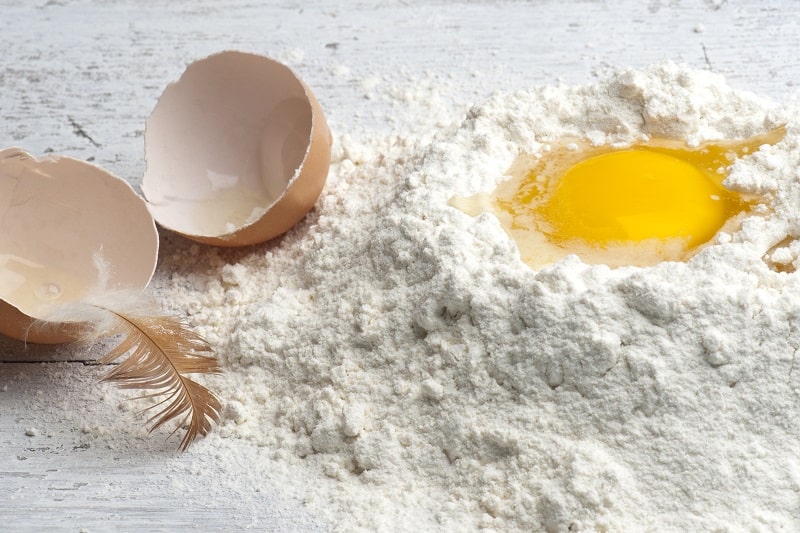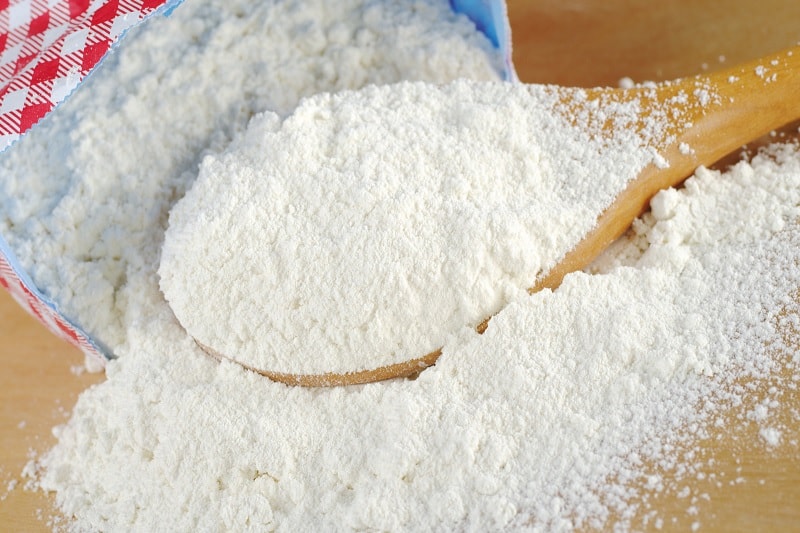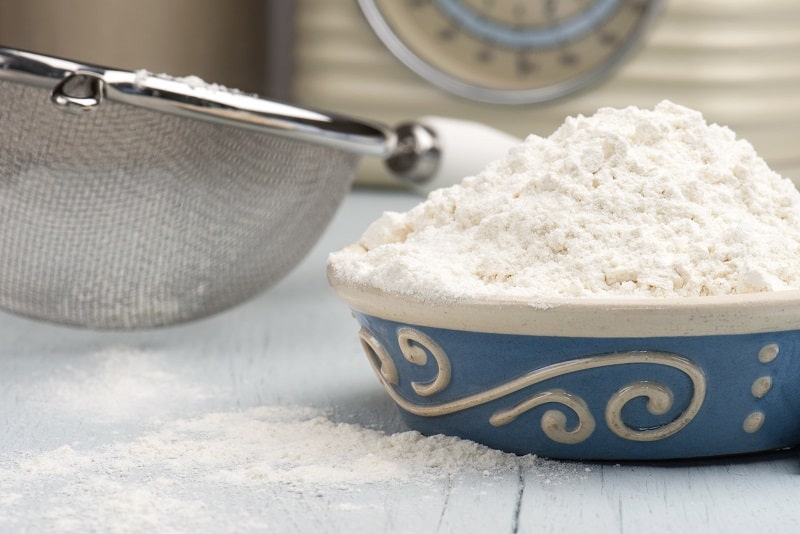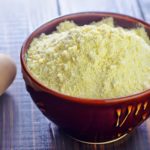Flour is one of those core ingredients that everyone should have in their cupboard. However, if you don’t bake regularly, you might find that your bag of self-raising flour goes past the expiry date.
What should you do with the flour once it reaches its expiry date? Does it need to be thrown away or can it still be used? We find out more below.
How Long Can You Use Self-Raising Flour After the Expiration Date?
Providing you have stored it correctly, self-raising flour is a very forgiving ingredient and won’t immediately go bad when it reaches its expiry date.
Self-raising flour should be stored in a cool, dark place that’s away from moisture. Any form of water is the biggest problem for flour.
You don’t need to store your flour in the fridge or freezer, but if you choose to do so you must use an airtight container with a fitted lid to prevent any moisture from creeping in.
Storing it in the fridge or freezer might extend the shelf life of the flour further beyond the expiry date, but it’s not strictly essential.

What Happens if You Use Expired Flour?
Unlike some other foodstuffs, not much will happen if you use expired flour in your cooking. In most cases the end result will be completely fine.
If the self-raising flour has gone way past its expiry date the worst thing which is likely to happen is that your baked goods won’t rise as much as you hoped.
You should check whether your self-raising flour still looks good before using it, just on the off chance that it is one of the few bags which has gone bad.
This is much more likely if it has been stored in a damp place or come into contact with water.
How Can You Tell if Self-Raising Flour Is Still Good?
In most cases your flour will look exactly the same as before, even if it doesn’t end up delivering the same high rise in your baked goods.
If you cook with flour which is past its expiry date, this is a risk you’ll have to take. You won’t know the outcome until you start baking; some items will be completely unaffected by flour used past its expiry date.
Signs flour has gone bad
You should never use self-raising flour which has gone bad. There are a few little tell-tale signs to look out for.
1. Flour mites and weevils
The first is flour mites or weevils. If you open the bag and notice tiny little black dots in your flour, bin the whole lot and disinfect the shelf. These are tiny little bugs that can appear in flour when it has gone bad.
2. Clumping
The second thing to look out for is clumping flour. This is different from the lumps that flour often settles into during natural storage. Clumping occurs when flour has been stored in damp conditions and may include some type of mouldy growth on the surface too.
3. Strong, unpleasant smell
Finally, give your flour the sniff test. Most self-raising flours won’t have a strong smell. If it smells rancid or stale, don’t use it.

Can I Add Baking Powder to Out of Date Self-Raising Flour?
If your self-raising flour has seen better days, you may be hoping to revive it to its former glory by adding in a pinch of baking powder. However, this may actually have the opposite effect and leave your baked items even flatter.
Self-raising flour has the perfect balance of baking powder in it at the start; adding more can cause your cake to raise quickly in the oven but deflate rapidly as it cools. You may also notice an unpleasant, bitter taste due to the excess baking powder.
In short, it’s not recommended as a solution.

Chef’s Pick is your guide to the best kitchen equipment and appliances in the UK.
We help you understand the confusing world of cookers, ovens and cookware so you can get the most out of your kitchen.







